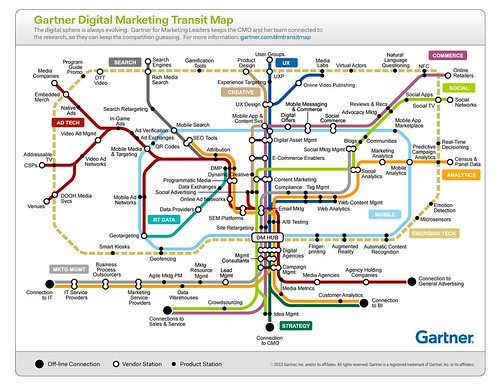The traditional marketing outsourcing strategy is that you will find someone or an agency that has done wonders for friends of yours or can produce an outstanding portfolio of accomplishments. You will interview them, and those items of brilliance will be demonstrated. You will hire one, and they will probably deliver outstanding content. You may hire the same people or someone else to develop social media. At first, you will be amazed by the new content and all the new activity. You may even gather a few new clients because this activity reaches into areas that you have not been before. After a while, you will experience a few problem clients and this activity not generating as much return. You start reviewing ROI and wondering. Of course, there is a lot of branding, and you can’t measure it all, so they say. You finally determine that you have to reduce costs and either find a less expensive agency or stop doing anything new, just continuing with what you have.
Marketing has transformed from the traditional methods of outbound marketing to the new methods of inbound marketing. It has spawned a different type of engagement. However the traditional means of marketing still reside within most organizations. They still hire people based on the look and feel of inbound marketing and the “deliverables”. When you outsource your marketing, you ask someone else to perform a job that only you and your organization can do. You allow that consultant or agency to come in and assume the role of delivering your brand.
As Phil Hernandez says in his book Revenue Disruption:
We are living, marketing, and selling in a new world, one where buyers determine their own brand preferences, research their own alternatives, ask friends about vendor qualifications, learn about pricing, and consent to talk to a salesperson only on their own timeline and terms. We have seen how this new mode of buying has run headlong into outbound marketing and sales practices that have not really changed much over the past 50 years. This clash of styles has created an enormous challenge for companies everywhere. But we have also seen the promise: Companies that embark on fundamental change in the ways they create revenue have the opportunity to unleash a radically higher performance revenue channel, take share from competitors, and achieve outsized revenue acceleration of 40 percent or more. The issue is real. The opportunity is huge. The strategy is concrete and actionable.
The successful Marketing Consultancies such as Sales Force, Hubspot and Phil Hernandez’s own Marketo are companies that deliver a process that an organization, large or small, takes ownership of delivering their own message. The process has become the marketing. Marketing is no longer driven by the arts or the latest social media tool. Marketing now must deliver a powerful, transparent, and authentic message communicated in a compelling and trusting manner. This process can consume large blocks of time and energy if it is not delivered in a consistent, effective and efficient manner.

Many of our products and services have become commoditized. Often times, we are responding to a request for a proposal where the actual decision has long ago been made. Most buyers know what they want. The old thinking of solving problems for customers is just that, old thinking. Buyers want fresh perspectives that are aligned with theirs. This cannot be done through outsourced marketing content.
Can you afford to have everyone marketing, and the inefficiencies throughout the organization that this creates? Can you afford to have your entire organization taking a 10-minute Twitter Break”? What you need is a systematic process, (I do not mean optimizing a sales funnel) so that across organizational boundaries, the right people engage at the right time. This is now one of the primary roles of marketing; reduce the clutter and bring the right people together. Consultant and author Kristin Zhivago offers the following quote:
Marketing has shifted from 80 percent creative and 20 percent logistics to 80 percent logistics and 20 percent creative.
Most organizations have never viewed their marketing from a process standpoint. The world of creativity clashes with the logical thinkers in the process world. What marketing needs is a system that bridges that gap!
